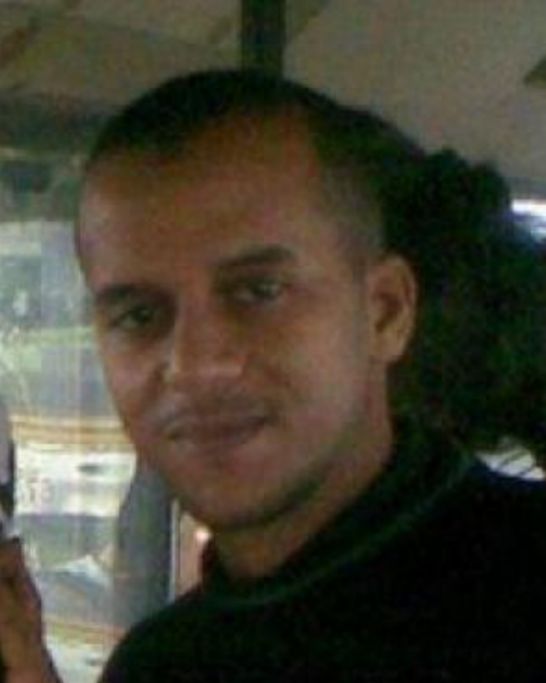
The Saharawi activist Sultana Khaya and her family has for almost 10 weeks been harrassed by Moroccan police when leaving or entering their home in occupied Western Sahara. Help us to denounce.
Photo: Sultana Khaya visited Norway in 2012.
For almost 10 weeks, the renowned Saharawi activist Sultana Khaya and her family have been placed under a fierce house arrest by Moroccan police and intelligence units.
On her 65th days of house arrest, Sultana explained that a police officer recently had told her that "My job is to make you crazy. I will not stop until I see you running out in the street naked, screaming".
Sultana has suffered from continuous attacks by Moroccan police. Khaya told that the aim of the house arrest is “to install fear and to silence me”.
The current situation of Sultana and her family is described in an urgent appeal that three civil society associations published today. Find the full version of this appeal here.
The appeal also addresses other recent developments in the territory.
On 13 November, the 29-year-long ceasefire between Morocco and Polisario came to an end and the armed struggle between the two parties resumed. Ever since, fierce repression has been observed in the occupied territories of Western Sahara against the indigenous Saharawi population. Saharawi activists, journalists and human rights defenders, as well as Saharawi civilians, report that they are being targeted by the Moroccan occupying forces and placed under constant surveillance with their family homes being monitored. The situation has grown more dangerous since the December 10th proclamation by former President Donald Trump recognizing Moroccan sovereignty over the territory, in contravention of International Law.
For decades, Morocco has tried to ensure that there are no international witnesses to its human rights violations and breaches of humanitarian law in Western Sahara. With no outside monitors and observers, Sahrawis are left on their own to document and report human rights violations against them. Those trying to break this blockade and the current culture of impunity are risking their own lives, safety and freedom to do so, serving as the reason for all currently imprisoned Saharawi activists.
Ever since the end of the ceasefire, reports received indicate that the situation of Saharawi political prisoners is seriously deteriorating, with increased isolation, threats and intimidation. The continued isolation of several of the Gdeim Izik prisoners serves as a vicious reminder of this practice, with the prisoners having been held under arbitrary detention for over a decade following their arrest in conjunction with the dismantlement of the Gdeim Izik protest camp in the occupied territories of Western Sahara in November 2010.

One of the Gdeim Izik prisoners, Mohamed Lamin Haddi, held in the Moroccan prison Tifelt 2, is currently on an open hunger strike in protest of his prison conditions, including continued isolation, medical negligence and deprivation of basic rights. Mohamed Lamin Haddi commenced his open hunger strike on 12 January 2021 and the Gdeim Izik prisoners held in Kenitra prison also initiated a 48-hour hunger strike on the 20 and 21 January in solidarity with Mohamed Lamin. The brother of Saharawi political prisoner Mohammed Lamin Haddi explained to us, “My brother has been held under arbitrary detention for over 10 years. For over 3 years, he has been held in solitary confinement. Imagine being tortured every single day... That´s why he is on hunger strike. Because he simply does not have a choice. He would rather die than spend one more day under this kind of torture".
Human rights organizations have since the start of the COVID-19 pandemic called on Morocco to release all Saharawi political prisoners. Morocco, however, continues to ignore calls coming from such organizations and from the UN human rights mechanisms to release Saharawi political prisoners.
This is the third public appeal issued in response to the alarming increase of repression and violence against Sahrawi civilians in the territories of Western Sahara under Moroccan occupation, following the recent escalation of the 45-year conflict between the Polisario Front and Morocco.
The present appeal is prepared by the Norwegian Support Committee for Western Sahara and the Spanish human rights organization #NomadsHRC in collaboration with the Sahrawi journalist organization Equipe Media. A first version of this appeal was published 20 November 2020 and a second version of this appeal was published 4 December 2020.
With this appeal, we ask individuals and organizations to take urgent actions and to appeal to the Moroccan government to abide by their obligations under International Human Rights Law and International Humanitarian Law whilst denouncing the house arrest of Saharawi human rights defender Sultana Khaya and call for the release of all Saharawi political prisoners.
Further information:
NomadsHRC, mcarriondequesada@protonmail.com
Norwegian Support Committee for Western Sahara, tone.s.moe@protonmail.com
Order our Western Sahara poster!
“Try to Visit Western Sahara”…
The Security Council fails Western Sahara and international law
On 31 October 2025, a new resolution was adopted in the UN Security Council calling on the Saharawis to negotiate a solution that would entail their incorporation into the occupying power, Morocco.
Saharawis Demonstrate Against Trump Proposal
The United States has proposed in a meeting of the UN Security Council on Thursday that the occupied Western Sahara be incorporated into Morocco.
Skretting Turkey misled about sustainability
Dutch-Norwegian fish feed giant admits using conflict fishmeal from occupied Western Sahara. Last month, it removed a fake sustainability claim from its website.



